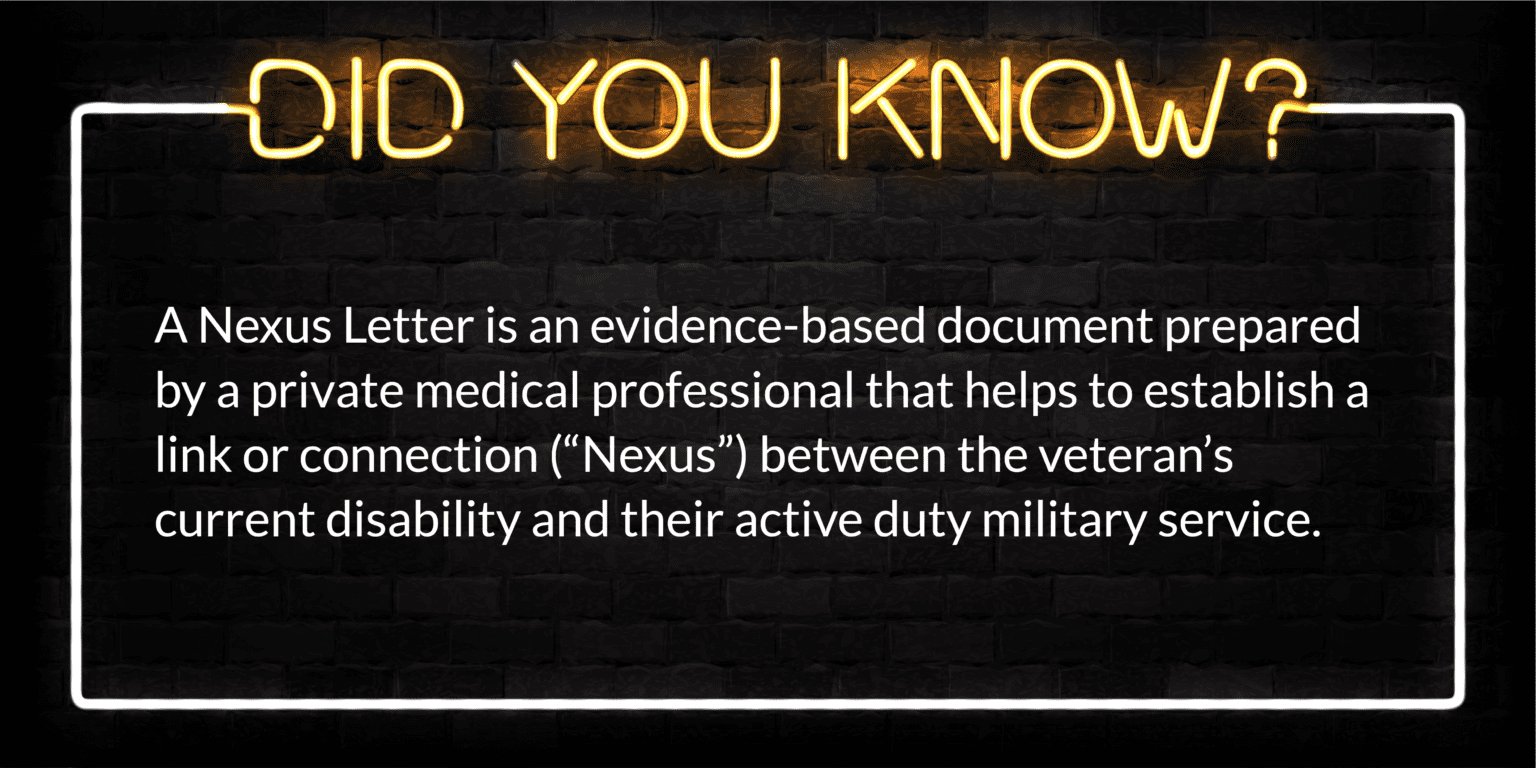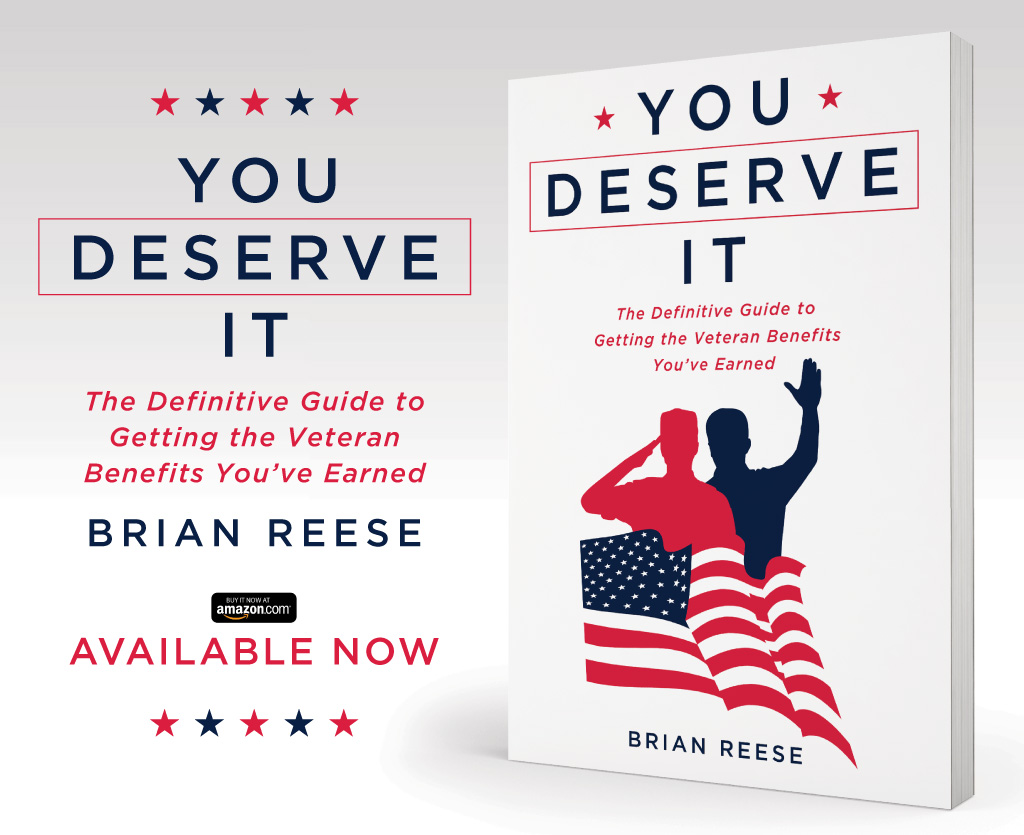Looking for Expert-Level VA Claim Answers?📱Call Us Now! 737-295-2226
Today, we’ll explore whether it’s possible for veterans to get Free Nexus Letters for their VA disability claims.
The short answer is: No, you can’t get completely free Nexus Letters.
However, we’ll review two solid options for veterans to get high-quality Nexus Letters from private healthcare providers at reduced rates.
If you want to save time and money, this post is for you!
Let’s begin.
Where Can I Get Free Nexus Letters?

You can’t.
There is no such thing as “free” Nexus Letters.
Why?
Because doctors don’t work for free; they work for a fee.
You’re paying for the time, experience, and credentials of the private provider.
Veterans get Nexus Letters from private healthcare providers—typically Nurse Practitioners (NPs), Certified Physicians Assistants (PA-Cs), and/or Medical Doctors (MDs).
These private providers charge for their services, normally a flat fee, to review a veteran’s medical records and write a Nexus Letter.
What Is a VA Nexus Letter?

According to Tara Thompson, PA-C and Founder of MRPY Professional Services:
“A VA Nexus Letter is an optional support document for your VA disability claim that discusses in-detail how a current medical condition is either connected to your military service or to one of your service-connected disabilities. It is written by a licensed medical professional who is trained to provide this type of expert independent medical opinion. The key components include a statement of likelihood that the condition is service connected using specific phrases, for example, “at least as likely as not” or “more likely than not,” and a detailed rationale for the opinion. Additional components that can be helpful and may tip the balance in your favor for service connection are references to peer reviewed medical literature and any VA case precedent that apply to the veteran’s claim.”
— Tara Thompson PA-C
Brian Reese the VA Claims Insider describes a Medical Nexus Letter, also known as an Independent Medical Opinion, as:
“A Nexus Letter is an evidence-based document (advisory type opinion) prepared by a private medical professional that helps to establish a link or connection (“Nexus”) between the veteran’s current disability and their active-duty military service.”
Note: Not all Nexus Letters are created equally nor are they offered equal weight by the VA.
A Nexus Letter is never required, and it does not “guarantee” service connection.

Veterans must ensure their VA Nexus Letter has high probative value:
“For a Nexus Letter to have high probative value in support of a veteran’s claim for VA disability benefits, it should be thorough, factual, and include convincing, evidence-based rationale. The letter should also include all records reviewed as well as relevant medical research reports and BVA case law decisions used to help support the doctor’s independent medical opinion. The strongest nexus letters include a nexus statement with the words “at least as likely as not” assuming the independent medical provider believes the veteran’s condition was caused or aggravated by his/her active-duty military service.”
— Brian Reese, Bestselling Author of You Deserve It: The Definitive Guide to Getting the Veteran Benefits You’ve Earned
While Nexus Letters can be submitted at any time during the VA claim process, we recommend veterans provide them to the VA at claim submission – either the initial claim, increase claim, or during the appeals process.
How Do I Know If I Need a Nexus Letter?

Here’s a simple litmus test to determine if you need a Nexus Letter for your VA disability claim:
- If your disability was diagnosed during service, and it’s in your military medical records (Service Treatment Records), you probably do not need a Nexus Letter. Why? Because you have medical evidence that the disability existed during your military service.
- If your disability was not diagnosed during service or if there are no documented symptoms in your military medical records, you probably do need a Nexus Letter. Why? Because you don’t have medical evidence that the disability existed during service.
- If you’re attempting to service connect a previously denied VA claim or trying to file for secondary service connection, a Nexus Letter is highly recommended. Why? Because you need a powerful argument to overcome a previous VA claim denial. In addition, secondary service connection requires Medical Nexus Evidence that your new disability is “proximately due to” or “aggravated by” a current service-connected disability.
What Should Be Included in a Nexus Letter?

When requesting a Nexus Letter from a private healthcare provider, veterans should be on the lookout for five critical elements.
- The best VA Nexus Letters contain all the following items:The best nexus letters are short, factual, and evidence-based (2-5 pages in length)
- The private provider should review the veteran’s entire VA Claims File (C-File) and explain any/all records reviewed
- The private provider should cite applicable medical research studies and case law (to include any BVA decisions) to back-up their assertions
- At a minimum, the private provider should express his/her nexus opinion for service connection with “at least as likely as not”
- The Nexus Letter must be signed and dated, to include the private provider’s medical credentials, and his/her contact information
How Much Does a Nexus Letter Cost?

In 2022, the average cost for a Nexus Letter from a private doctor is around $1,500; however, they can cost more or less depending on the providers education, training, experience, and medical specialty.
There are some doctors and companies who offer FREE Nexus Letters up-front, but later charge the veteran a certain percentage or flat fee if the veteran receives a disability increase.
Nexus Letter Doctors Near Me: How to Get Quality Nexus Letters at Reduced Rates

Veterans should do research online for the best doctors who write Nexus Letters.
Here’s two good options for veterans to get high-quality Nexus Letters, from licensed providers nationwide, at reduced rates:
Telemedica
Pros: High-quality firm with extensive experience helping over 10,000 veterans to-date with credible Nexus Letters. Serves veterans nationwide and in Puerto Rico. Also offers virtual exams, rush services, DBQs, rebuttal letters, and recurring mental health therapy. Veterans can connect with a licensed provider in their state from a mobile device, anytime, anywhere with Telemedica’s simple and easy to use telehealth platform.
Cons: Lack of specialty medical doctors. Not available for in-person evaluations.
*Disclaimer: Telemedica is a VACI-Affiliated Provider and VA Claims Insider Elite Members can get Nexus Letters and DBQs at 61-67% off Telemedica’s published rates.
MRPY Professional Services
Pros: Veteran-owned and operated company that provides medical evidence documentation to veterans nationwide. Also offers NexusPrep™, virtual exams, DBQs, and rebuttal letters. Competitive rates on all products and services.
Cons: Lack of specialty medical doctors. Not available for in-person evaluations.
Conclusion

#1). If you have little evidence of a disability in your service treatment records, get a Nexus Letter.
#2). If your VA claim was denied service connection, get a Nexus Letter.
#3). If you’re trying to prove secondary service connection, get a Nexus Letter.
While a Nexus Letter does not guarantee service connection, it can serve as the missing link for veterans trying to establish service connection for their VA disability conditions.
A VA Nexus Letter is also incredibly powerful to combat a bad C&P exam, especially if a veteran has been denied service connection for a condition, in which he/she believes it should be service connected.
About the Author

Brian Reese
Brian Reese is a world-renowned VA disability benefits expert and the #1 bestselling author of VA Claim Secrets and You Deserve It. Motivated by his own frustration with the VA claim process, Brian founded VA Claims Insider to help disabled veterans secure their VA disability compensation faster, regardless of their past struggles with the VA. Since 2013, he has positively impacted the lives of over 10 million military, veterans, and their families.
A former active-duty Air Force officer, Brian has extensive experience leading diverse teams in challenging international environments, including a combat tour in Afghanistan in 2011 supporting Operation ENDURING FREEDOM.
Brian is a Distinguished Graduate of Management from the United States Air Force Academy and earned his MBA from Oklahoma State University’s Spears School of Business, where he was a National Honor Scholar, ranking in the top 1% of his class.




